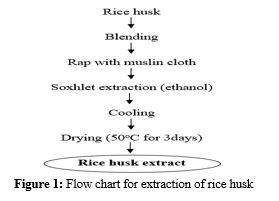Corrosion Inhibition and Adsorption Potential of Rice Husk and Chitosan Extract on Mild Steel in Acidic Media
DOI:
https://doi.org/10.54117/ijps.v1i1.3Keywords:
Adsorption, inhibition, corrosion, rice husk, Chitosan, Fourier Transform Infrared Spectroscopy (FTIS), mass lossAbstract
One of the consequences of industrial food production activities is the generation of a huge volume of waste, whose disposal can lead to environmental and human health problems, yet often they can be turned into high-value and useful products. On the other hand, the use of mild steel has gained more attention in food industrial applications because of its mechanical properties, ease of fabrication, low purchasing cost, and one of the ways to manage food waste. However, mild steel is susceptible to corrosion in an acidic medium. This study is aimed at investigating the inhibition and adsorption potential of the value-added product Rice husk and Chitosan on mild steel. Inhibition potential and adsorption characteristics of Rice Husk/Chitosan were done. A weight-loss experiment followed phytochemical analysis of rice husk to check the inhibition efficiency. Fourier Transform Infrared Spectroscopy (FTIR) and other chemical analyses were done to gauge the adsorbent's performance. The analyses of the result showed that the inhibition efficiency increases with increased concentration of the inhibitor and increases with temperature. The data obtained ascertain the adsorption of the extract on the surface of the metal with an inhibition efficiency of 89.98%. The mechanism of adsorption of the extract is chemisorption.

Downloads
Published
How to Cite
Issue
Section
License
Copyright (c) 2022 Clinton Oluwasegun Balogun, Bolade Kayode Adeoye, Johnson Adeola Adegboyega

This work is licensed under a Creative Commons Attribution 4.0 International License.
